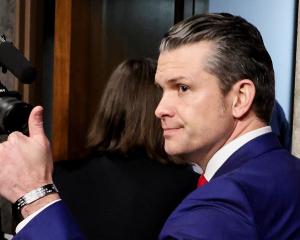There is taking place today, largely out of public sight, a keen debate on the future of currency which, if its proponents win legislative support, will change the way most people live.
It has been triggered by the so-called "global monetary crisis" (which is substantially a Western monetary crisis) and especially by the state of the American dollar.
Since 1944, the world's monetary system has relied on the US dollar as the currency by which virtually all major transactions, including the price of gold, are measured.
Thus, New Zealand's exports are generally priced in US dollars, and similarly our imports are priced according to the greenback's value.
But a week or so before the recent summit of G20 nations - which failed to produce a solution to what is beginning to look like a global currency war - the World Bank president Robert Zoellick suggested a number of possible solutions to deal with the rapidly expanding imbalances in trade and currency values.
Of his five points, the one that has attracted much interest is his suggestion for a co-operative monetary system that is more accurately reflective of emerging economic conditions, and that gold should be used as an international reference point of market expectations about inflation, deflation and future currency values.
A "gold standard" has not been spoken about for many years but it is by no means a new idea: former US Federal Reserve chairman Alan Greenspan argued for its return as early as 1966.
In fact, the free market seems already to be using gold as a kind of standard, since its price has doubled in the past two years, to about $US1400 an ounce.
Of course, nervous investors have always bought and hoarded gold as a hedge against the fall-out from currency fluctuations.
The "gold standard" was used by many countries, including New Zealand, as the standard value for the currency right up until the 1930s.
Britain abandoned it in 1931 and the US in 1933, although gold was still used until 1971 to peg the value of the dollar.
In the modern era, the world - including this country - has used the floating currency system to value its exchange rates.
Would pegging currencies to a modified "gold standard" again be beneficial? Economists argue there would be both good and bad outcomes.
The United States wants booming China to let the value of its currency, the yuan, rise, which would make Chinese exports costlier abroad and make US imports cheaper for the Chinese to buy.
It would also shrink the US trade deficit with China, which this year is expected to reach $NZ344.51 billion.
Many other countries are aggrieved by the Federal Reserve's actions in printing more dollars, which is driving down the value of the currency and giving American exporters an advantage.
There are well-grounded fears that this activity will likely fuel inflation.
Keynesian theory argues that a good way to repel an economic downturn is to inflate the money supply - essentially a political decision.
Linking a currency to gold would mean its value would be free from government manipulation: today's paper currencies only have the backing of promises of the governments that issue them.
Arguments against returning to a "gold standard" include the intriguing complication of there being insufficient amounts of the metal to keep pace with the global economy's expansion and the money creation that would require.
Many governments are opposed, too, because it would limit what they could do in terms of economic policy.
The risks of deflation would be high, even if gold was included in the basket of currencies presently used to measure values.
And what might be a reliable basis for assessing the fair value of gold? The historical record suggests a "gold standard" would not guarantee long-term price stability that some advocates believe, and this undermines the chief claimed benefit of confidence and support for long-term decision-making.
The "gold standard" did not prevent the 1929 Wall Street crash.
That the world needs some form of new currency regime is being widely discussed as a solution to the deeply worrying chaos that is besetting currency markets.
Lord Keynes's idea of an internationally issued and managed currency was spiked on the throne of the US dollar at the end of the war, but that currency's paramountcy seems to be over.
The trust in all paper money is weak.
Mr Zoellick's argument has at least given momentum to the need for a new monetary agreement to govern the world economy.
There are also alternatives to gold, including energy-based currencies, in a world where co-operation and self-discipline no longer seems to exist.
What seems certain is that any solution this time will be dominated by what China thinks, not by the United States.












